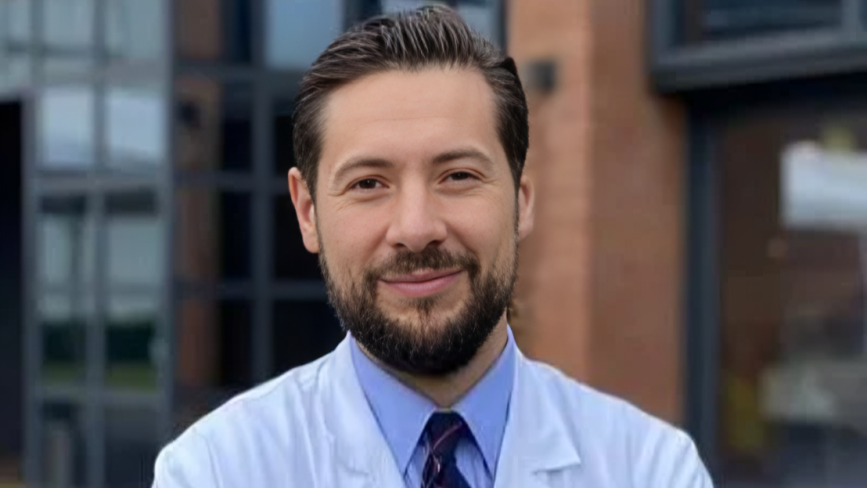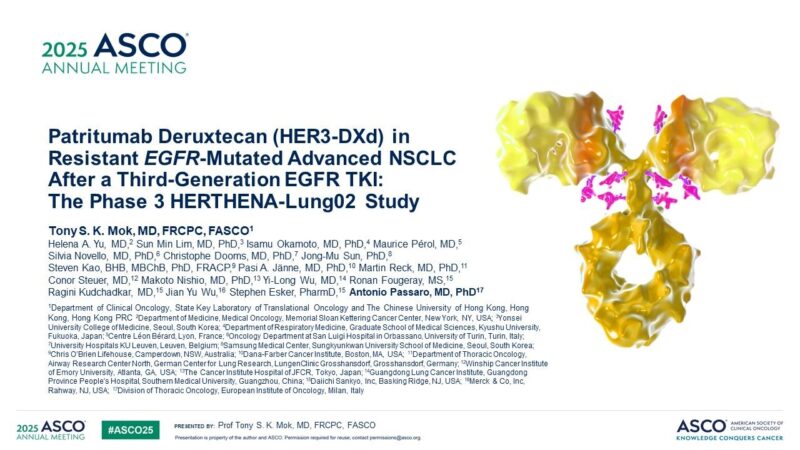Antonio Passaro, Medical Oncologist and a Medical Director with High Specialization Assignment at the European Institute of Oncology, shared a post on LinkedIn:
“Not your average ASCO25 update. Let’s talk about HERTHENA-Lung02.
Just a few days have passed since the presentation at ASCO25.
We already knew from the initial MSD and Daiichi Sankyo press release that there was a significant PFS benefit. That held up. But so did the lack of OS improvement. Then came the second press release: license applications withdrawn.
So what happened?
This trial reinforces what many in the field are beginning to realize: when it comes to ADC development, we’re still scratching the surface.
Same payload. Active antibody. Different outcome.
The missing link? (potentially) Quite literally, the linker.
In the post-Osimertinib landscape, leading ADCs (Dato-Dxd, Iza-Bren, Teamb-A) are closing in fast. Not just as monotherapies, but also in combination strategies, where Osimertinib might still be the keystone.
Let’s be clear: negative trials matter. They push our science forward.
They force us to rethink mechanisms, refine pharmacology, and hopefully deliver better clinical outcomes. Biomarker analysis will be critical to interpret and move beyond this point.
But here’s the question I can’t shake:
Are we absolutely sure Patritumab didn’t deserve a role in our clinical toolkit, perhaps even instead of Docetaxel or later lines…?
Sometimes, the real progress is hidden in the trials that didn’t go as planned.”
Amol Akhade, Consultant Medical Oncologist at the Suyog Cancer Clinics, commented on this post:
“Hi Antonio,
Issues are with trial design and not with drug alone .
Patient population: These were heavily pretreated patients, post-TKI and chemo. Response to any monotherapy ADC here would always be limited. Was this the right setting to test HER3-DXd?
No biomarker enrichment: HER3 expression was not used to stratify or select patients. That’s a major miss. We’ve learned from other ADC trials (like Dato-DXd or Trop2 programs) that predictive biomarkers and target expression matter—especially for efficacy and safety balance.
Single-agent strategy: In a refractory population, a monotherapy ADC may not be enough. Many of the successful ADCs today are moving toward combination strategies—with IO or TKIs—even earlier in the treatment pathway.
Toxicity trade-off: The safety profile of HER3-DXd is non-trivial. The balance between modest PFS gain and adverse events needs careful weighing. Could this have influenced regulatory skepticism?
The question isn’t whether Patritumab “deserved” a role—it’s whether the trial design gave it a fair shot. Without biomarker guidance, in a late-line setting, with monotherapy only, even a good drug might falter.
The drug is as good or as bad as trial design.”
Jamie Mitchell, Life Science and Healthcare Consultant at Solici, also commented on Antonio Passaro’s post:
“Very insightful, thanks for sharing Antonio!
I echo your thoughts on patritumab and on the important role of the linker in ADCs.
I think this is highlighted by the utility of Dato-DXd’s tetrapeptide-based cleavable linker, which requires internalization through TROP2.
In this regard, the development of the TROP2 NMR QCS biomarker assay as a measure of TROP2 internalization and subsequent Dato-DXd efficacy is really intriguing.
Conversely, sacituzumab govitecan has a hydrolysable CL2A linker, which I don’t believe requires internalization, meaning TROP2 becomes a difficult biomarker to use for the ADC.”
More posts featuring Antonio Passaro on OncoDaily.



